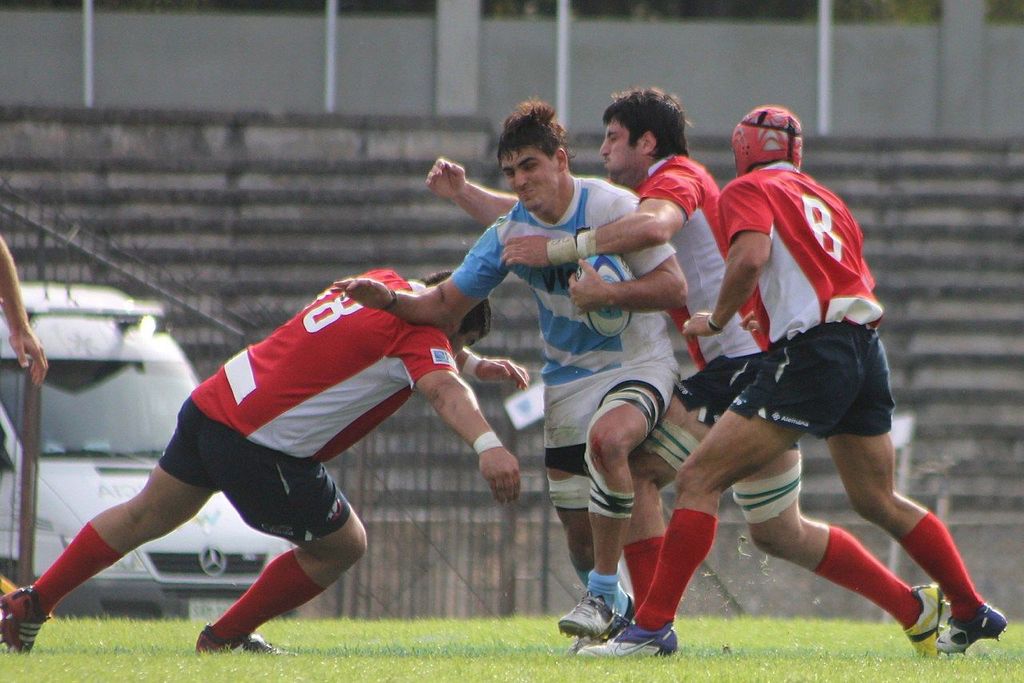Argentina has certainly used the World Rugby U20 Championship, and previous international age-grade tournaments, as a crucial stepping stone to full international honours.
Since the inception of the U20 Championship in 2008, 69 Pumitas have made it to Los Pumas. That list has grown much bigger since the first age-grade international team back in 1972.
The transition from youth level to full international is part of a clear pathway designed by the Unión Argentina de Rugby that has proven to be very rewarding.
“We are very proud of having promoted so many players,” says Francisco Rubio, Rugby Manager at the UAR, on being the country with the highest number of graduates.
Argentina devised its High Performance plans in 2008, which became operational in 2009. Many from the team that travelled to that first U20 Championship in Wales would be added after their U20 career ended; names such as Martín Landajo (84 caps) and Nicolás Sánchez (80) went on to have successful careers at home and overseas.
“Our HP plan includes in its pathway Pumitas, Argentina XV and sevens. This leads to Jaguares, our Super Rugby teams and Pumas,” adds Rubio.
When looking at the squad in Japan 2019, all but two came through the UAR pathway and HP programme: hooker Santiago Socino and prop Juan Figallo. “Santiago turned to hooker overseas and Juan left soon after the 2008 Championship so he didn’t work with us.” Figallo retired from test rugby in Japan, his third RWC.
“It would be an exception if we were to find someone from outside the HP for Los Pumas," says Rubio. "Players mature at different stages so it is not improbable, but the scouting works very well.”
Players such as Bautista Delguy, for example, featured at every step of the pathway, playing for Pumitas, Argentina XV, sevens, then Jaguares and finally shining at Los Pumas.
An army of support
Rugby at club level in the country is very strong, with an army of hard-working amateurs that teach and prepare thousands of players. The best come through thanks to a large national network.
In order to repay these efforts in the more than 650 clubs in the country, the UAR has been working tirelessly in nationwide education programmes. Before the COVID-19 pandemic, national coaches would criss-cross the large nation delivering well-attended courses. Nowadays, virtual sessions have become the norm, and are reaching more and more people.
“We clearly understand, and thank, the role clubs play and we share our information with them,” adds Rubio.
"You either get word of a player through club connections all over the country or players show their talent at different levels and then are invited to join the programme".
Before the HP programme, the pathway meant a jump from club to international level. Now there are local provincial academies and five national centres helping players develop themselves.
Los Pumitas have been in existence since 1972 and it is unclear how many that first donned the jersey at U18, U19, U20 or U21 level have made it to the full national team, but the number is certainly over 200. The pathway is a longer and better road these days.
“The goal,” says Rubio, “is to make them better. They have their virtues and if they can grow on them the programme is working. The satisfaction comes from having a good team that fulfils the plan.”
It is not only about being good rugby players, as the HP programme expects more from the players. University scholarships are available and the approach is far more integral.
“Being a Pumita is the first step in a long-term development for the player. Having a World Championship every year is certainly important for the players, but it is also part of the pathway,” concludes Rubio.
Some of the better known recent graduates are Landajo, Sánchez, Tomás Cubelli, Nahuel Tetaz Chaparro, Ramiro Moyano, Javier Ortega Desio, Matías Orlando, Joaquín Tuculet, current Puma captain Pablo Matera (main photo), Santiago Cordero, Jerónimo de la Fuente, Julián Montoya, Matías Moroni, Facundo Isa, Guido Petti, Marcos Kremer, Emiliano Boffelli, Bautista Delguy, Santiago Medrano and Mayco Vivas. Tomás Lavannini starred in 2012, but had already played his maiden Puma international and is therefore not considered a graduate.
